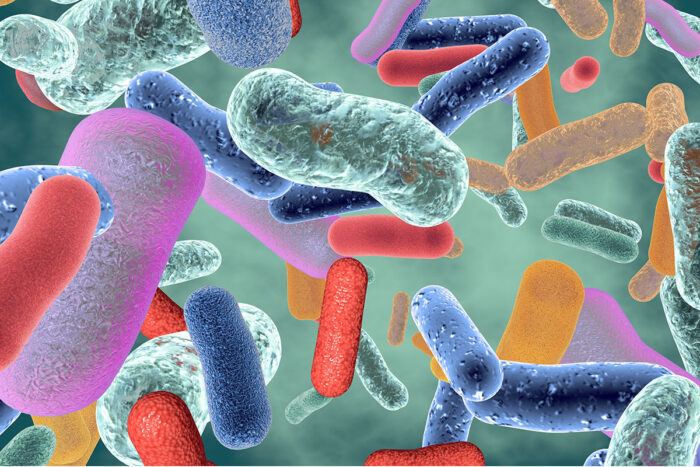NIH gives major boost to microbiome research on Medical Campus
Will advance research in areas that include immunity, metabolism, infectious diseases and neuroscience
 Getty Images
Getty ImagesA longtime leader in microbiome research, Washington University School of Medicine in St. Louis plans to expand research into the microbiome with a new mouse facility that will further enable researchers to understand how microbes influence health and disease. The facility will be funded with an $8 million grant from the National Institutes of Health and an additional $2.8 million from the School of Medicine.
Tens of trillions of microbes, including bacteria, viruses, parasites and fungi, live in and on the human body. Their microbial genomes, collectively known as the microbiome, contain at least 100 times more genes than our human genome. Such microbial genes provide us with capabilities that we have not evolved on our own, including the ability to process otherwise indigestible components of our diets, such as fibers, and produce essential nutrients. Our microbial communities have profound and myriad beneficial effects on our health, but when perturbed, they influence the risk of developing conditions, including malnutrition, obesity, diabetes, inflammatory bowel disease and possibly neurologic disorders. These communities also serve as a first line of defense from dangerous pathogens that represent global health threats.
A longtime leader in microbiome research, Washington University School of Medicine in St. Louis plans to expand research into the microbiome with a new mouse facility that will further enable researchers to understand how microbes influence health and disease. The facility – funded with an $8 million grant from the National Institutes of Health (NIH), along with $2.8 million from the School of Medicine – will provide a place to breed and house “germ-free” mice with no microbiomes of their own. By introducing members of microbial communities from humans into such mice and studying the effects, researchers from across the School of Medicine will be able to investigate the role of the microbiome in human health and disease. This includes developing and applying new molecular and imaging methods for characterizing the responses of various organ systems to the presence or absence of human microbial communities and their members.
This work builds on the research of Jeffrey I. Gordon, the Dr. Robert J. Glaser Distinguished University Professor and director of the Center for Genome Sciences and System Biology.
“Jeff pioneered the use of germ-free mice to study the human microbiome – its composition, functions and effects on human biology,” said Jennifer K. Lodge, PhD, the university’s vice chancellor for research. “Thanks to the NIH’s investment, this facility will expand our capacity for faculty and students to broaden, accelerate and advance this interdisciplinary area of research. Jeff has been called the father of the microbiome because his discoveries on the importance of the gut microbiome revolutionized and expanded our understanding of human biology. More than 50 investigators at the School of Medicine will benefit from a facility to study the microbiome. I am excited that we will be able to provide this resource to our investigators and their students.”
Named the Gnotobiotic Research, Education and Transgenic (GREaT) facility, it will be constructed within an existing building on the Medical Campus. The term “gnotobiotic” comes from the Greek words “gnosis” (known) and “biosis” (life) and refers to animals whose microbial content is defined and can be controlled. Germ-free mice, which have no microbiomes at all, are one kind of gnotobiotic mice. They can be reared in specialized isolators without being exposed to any microbes in the environment. The ability to introduce collections of human microbes into these mice at different times after birth allows researchers to investigate how microbial communities and their members interact with each other and with host cells and organs.
“This new facility will enable Washington University investigators to conduct a wide array of innovative studies, including analyzing the effects of individual microbes, human or mouse microbial communities, and their metabolic products,” said Megan Baldridge, MD, PhD, an assistant professor of medicine and of molecular microbiology. She studies how the microbiome interacts with the immune system to control infectious diseases, and was named a 2018 Pew Scholar by the Pew Charitable Trusts.
“The use of germ-free mice permits highly controlled studies of the human microbiome that simply can’t be achieved through any other means,” she added. “Once established, this facility will enhance research in fundamental areas of science, including microbial ecology, microbial genome evolution, microbial metabolism and synthetic biology as well as catalyze work designed to develop a 21st century medicine cabinet that includes microbiome-directed therapeutics.”






